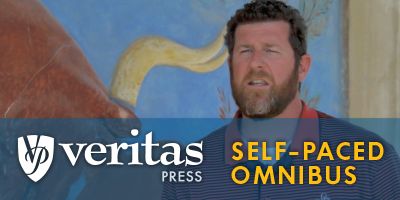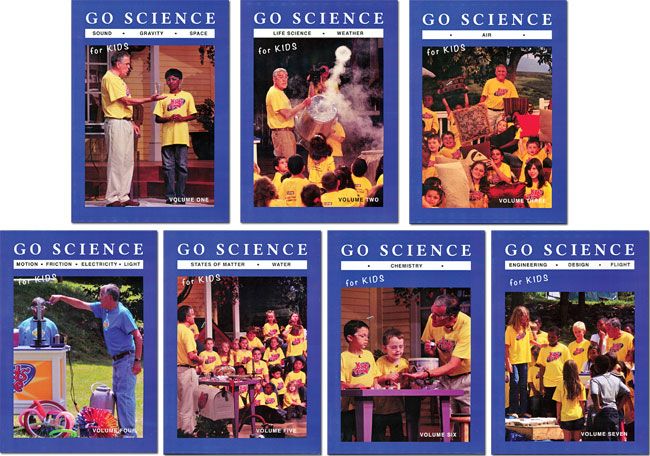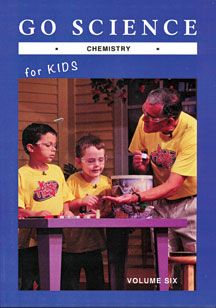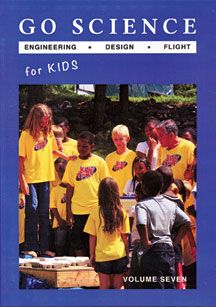As you know, I am part of the launch team introducing you to Experiencing History through Music! That's what the BIG Give-Away is all about ($700+ BIG!- go sign up!). We've been listening to Diana Waring for years- way back when her products came on tapes. Before I introduce you to the wonderful musical history, I want to introduce you to the lovely Diana Waring!

Author of Beyond Survival, Reaping the Harvest and Diana Waring's History Revealed world history curriculum, Diana discovered years ago that "the key to education is relationship." Beginning in the early '80's, Diana homeschooled her children through high school–the real life opportunities to learn how kids learn. Mentored by educators whose focus was honoring Him who created all learners, and with an international background (born in Germany, university degree in French, lifelong student of world history), Diana cares about how people learn as well as what they learn. Audiences on four continents have enthusiastically received her energetic speaking style.
1. What was your life like musically as you were growing up? Did you take lessons, sing with your family, in a church choir, etc.?
I ALWAYS loved music. . . I was always singing, started playing clarinet in 4th grade, oboe in 7th grade (!!!), taught myself to play guitar in 10th grade.
I was an only child, my parents were not musical, and we did not attend church. . .
But music WAS in my grandparents' lives. My father's father played guitar and sang before he had a stroke in 1953 (there is a FASCINATING story there -- tell you later), and my mother's father played various string instruments and sang, as well. I have met folks who knew him, and they tell me he was a fabulous story-teller and a fun musician.
Once I learned to play guitar (in 1969), I started doing folk music whenever I had the chance. If you can believe this, I even tried to get permission to play in bars when I was 15. After I became a Christian, I started playing worship music for prayer meetings. . .
Which led to me becoming the worship leader at our Christian fellowship in college and at the church I attended.
Since music was one of my greatest motivators, I expected to continue in that realm. . . particularly within church settings. It was unexpected to have the door suddenly open up in 1989 to create these American folk music recordings--but I loved the songs and the genre of music!!
Now, here we are, 25 years later, and I am absolutely THRILLED to have this musical part of my life come back!! I pulled out my 12-string, donned my historic costume, and sang folk songs in Greenville, Cincinnati and Harrisburg this spring -- and it was a JOY!!
2. How did you start writing history books?
The very first book I wrote WAS a history book—an earlier version of "America." As I have shared in the back story, when a friend suggested that it would be beneficial to attend a homeschool convention—and the only way I could afford to get in was to become a workshop presenter—the idea of marrying American folk music to American history seemed like such fun that I had to write a book! (And help create the folk music recording!!)
One thing often leads to another. Doing workshops on making history come alive using music exposed me to the notion that there are many other wonderful ways to make history come alive, like literature, geography, the Bible, science, art, architecture, cooking and more.
All of this melded together when I started teaching my own children world history in 1992. There were so many things I wanted to know about how events recorded in the Bible impacted the ancient cultures of the time. . . seeing the "secular" civilizations through Scripture and better understanding Scripture in light of those civilizations.
I was SO excited about what we were learning that I started telling others at homeschool conventions. . . which led to the History Revealed curriculum (20 years in the making). Nine books in that series (plus nine sets of audio CDs), plus two of the three American folk music/history books (and CDs) make a grand total of 11 books on history that I have had the opportunity to research and write!
Goodness! I had no idea when I started homeschooling that I would learn so much. :)
3. What is your favorite period of history?
My standard answer is that my favorite period of history is the one I am currently studying!!
I think the deeper answer, though, is that I have always been fascinated by the incredible drama of WWII and its aftermath. I was born in Germany ten years after the end of WWII, and when it dawned on me as a fifth grader that my birthplace was at the epicenter, the reality that history HAPPENED engaged my heart and mind.
Add to that the fact that my grandfather was the chairman of the National Security Resources Board, appointed by President Harry Truman in 1951. He was the man responsible for putting the resources of America to work if we went into another world war—which was not a far-fetched idea in 1951 as we engaged in the Korean War and the early Cold War. I still remember listening to my grandfather say, "Diana, we must always know what the Russians are doing. . ." The Cold War was not a newspaper headline to him, it was VERY real.
So, with all of the personal family history, I think it is safe to say that WWII and the Cold War are, by far, the most fascinating to me.
4. Have your kids followed in your music-loving/performing footsteps (on any level)?
Yes! All three of my kids play instruments, all three love various types of music, and all three still enjoy singing with me whenever we get together!
My oldest, Isaac, is actually an amazing musician. He plays numerous instruments, often more than one at a time—which wows audiences! He has a huge baritone voice, which can fill a room faster than most. One of the most incredible things about Isaac is that, in performance, he can ask for words or phrases from the audience, then compose a song on the spot with those words—and it is so catchy that people will walk out the door singing the song!!
Mike is more of an athlete than a musician, but he plays bass guitar, Australian didgeridoo, and he sings both melody and harmony with a fabulous tenor voice! He wrote one of the most delightful songs I've ever heard: "Round Trip Ticket to Samoa". . . which we always thought would be a stunning song for travel agents. :)
Melody was my classically-trained musician. She studied classical piano very seriously, as she prepared to go to a conservatory and then into the world of concert pianists. Dr. Jay Wile, who attended her senior recital, told me that he was blown away with her musical talent. Tragically, when she entered the conservatory, she developed severe pain (which continues to baffle doctors) that prevented her from continuing in music. I absolutely melt, though, when she comes to visit and plays once again on my grandmother's piano. She loves, loves, loves music. (The tragedy turned to beauty when she began serving refugees, those in poverty, and youth-at-risk. She is amazing.)
5. Of all the songs in the three new books, which songs are your favorites?
I LOVE "Ho for California" in Westward Ho! Somehow, this one became my favorite. . . I remember the day we drove across the Sacramento River as a family, on our way to a homeschooling event in California, singing at the top of our lungs, "Then, ho, brothers, ho, to California go. There's plenty of gold in the world we're told on the banks of the Sacramento. . ."
"Gooey Duck" was, by far, the most popular song that we performed in our concerts. There is something so catchy about this song! Also, as I was writing the original Westward Ho!book, I chatted with my grandfather about gooey ducks (giant clams). He chuckled and told me that though they were plentiful in Puget Sound waters when he was a lad, they were SO ugly that people avoided eating them unless they were desperate. That has tickled me ever since. . .
"Sweet Betsy From Pike" is another favorite, included in America. It is such a singable ballad, and full of humorous possibilities. It was a delight to sing it on the recording!!
6. Do you play a musical instrument. If so what? and how old were you when you started playing?
In chronological order, here are the instruments I play (don't you know a historian would tell it chronologically???):
I learned to play clarinet in 4th grade.
Switched to oboe in 7th grade.
Switched to guitar (which I taught myself to play) in 10th grade, as braces made playing oboe impossible!!
Bought a mountain dulcimer and learned to play it when I was 17.
Learned to play recorder when I was 19. . . played it in the musical, "Godspell."
Took some lessons on piano when I was 20, and kept working at it on my own.
Learned to play banjo when I was 23.
But my real instrument is voice!!! I was a vocal major for a time in college, and have sung in concert choirs, as a worship leader, doing folk song concerts with my kids, and, last year I had the opportunity to sing Beethoven's 9th symphony in Indianapolis!
7. Which of the songs in this series of books resonant the most with your life and why?
As a musician and storyteller, I love the possibilities of telling stories in music—ballads are an incredible art form. "Old Settler" and "San Juan Pig War" are the two that I most enjoy singing for others, as they tell such memorable stories. . .
And, I love "Sweet By and By." We used to end our "Yankee Doodle Tells A Tale" concert with this song, and it never failed to bring me to tears. . . singing of our "bountiful Father above.
8. What value do you see in students learning America's folk songs?
How many opportunities do we ever have to actually DO what our ancestors did? As a real and normal part of our lives? You and I live in a world that is vastly different than the time period represented in America, Westward Ho! and Musical Memories of Laura Ingalls Wilder. And, yet, we can still sing and enjoy the very same songs they did, we can taste a tiny bite of history through the medium of folk songs, and we can experience America through it's music!
Plus, it's part of our American heritage. It's part of our history. And what could be more fun than learning history through songs you can clap to, stomp to, and sink your teeth into?? :)
9. Are these Experience History Through Music products to be used as curriculum? Is there a schedule to follow?
Though students can experience American history through these three books and CDs (and have a lot of fun in the process), it is not an actual curriculum. They are supplementary materials that can be enjoyed by anyone. There is no specific schedule to follow, no tests to take. You might describe it as a sort of "stealth academics," meaning that your kids will be having so much fun singing the songs, they won't even realize they are learning. But YOU will.
10. Do you have other books/products in the works?
Always!!
Next on my list of books to write is one entitled, "Daughters of God." I am hoping to have it finished by this fall.
Then, the plan is to create an American history curriculum for elementary age students, one that allows for the same sort of creativity and freedom as my world history curriculum, the History Revealed series.
Once these are both done, I have lots of things I have always wanted to write, but never had the time. . . including fiction—historical, of course!!
NOTE: There will be a Facebook Party next Tuesday evening, July 1, from 8-10pm EST. It's a joint party with Diana and A Journey Through Learning. It will start on Diana's Facebook wall and end on A Journey Through Learning's wall. There will be lots of great prizes and freebies, so I hope you can join in the fun!
@Golden Grasses 2008-2013. All photographs, artwork and text are the property of the owner unless otherwise stated. Don't miss a thing!
Subscribe to Golden Grasses and get our articles right to your inbox!





























